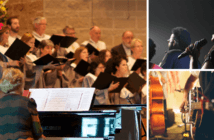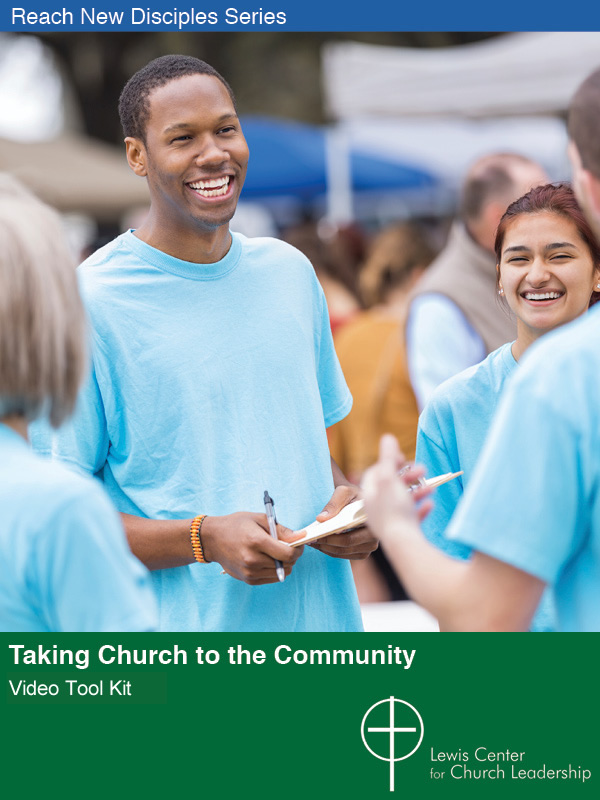Making new people feel welcome isn’t a sell out to a marketing and customer service mentality, says Rich Birch. It’s consistent with Scripture’s overarching theme of making space for the outsider. He outlines seven basic ways of making sure guests feel welcome.
Some church leaders look down their noses at churches that go out of their way to create environments that unchurched people love to attend. They’re concerned about growing Christ-followers and don’t want to worry about marketing, customer service, communications, or similar issues. They don’t concern themselves with pedestrian matters such as how people feel when they come to church.
The problem is that the Scriptures are clear that to worry about the outsider is core to being a follower of Christ. In fact, the entire weight of Scripture is about creating space for people who are outside of the faith to join us. In the Old Testament, we see God instructing people to defer to strangers and make room for them at the table. In an age when faiths were divided along racial and ethnic lines, Jesus presented the crazy notion that anyone from any background can gain access to God through faith in Christ alone. We see New Testament leaders attempting to live out a faith that created space for a broader community of people. They made space for outsiders.
Communicate that you are ready and expecting guests. Include signs in the parking lot for new guests, a gift ready for them at an information desk, or trained volunteers at the kids’ check-in.
How can we create spaces where people feel welcome at our churches regardless of their spiritual background? What can we do to ensure that unchurched people know they are welcome to our experiences every weekend? How can we do this in a way that doesn’t compromise the core of our experiences? Here are seven ways to help unchurched people feel welcome.
1. Create Helpful Signage
Do people know how to find their way around your facility? Can they easily get from their cars to wherever they drop off their kids to their seats in the main auditorium? Most churches I’ve been to don’t have enough signage. They assume people know way too much. Exterior signage lets newcomers know they are in the right place. Interior signage should guide them through the experience while reducing stress.
2. Introduce People
When someone gets up to talk, make sure they introduce themselves or that someone else does a quick introduction. “Hi, my name is James and I’m one of the pastors here.” A simple introduction helps unchurched people get a sense of who everyone is and helps them know whom they should talk to afterward. When people just get up and start talking or leading without any context, it leaves guests wondering who the person is and why they are talking.
3. Expect Guests
You know that feeling when you go a friend’s house, and it feels like they were ready for you? It feels great, right? What about the opposite feeling: when you go over to someone’s house and you get the distinct feeling that they aren’t ready for you? It’s easy to start wondering whether they want you over at all, isn’t it? The same is true when guests visit your church. Even a few things that anticipate guests communicate that you are ready and expecting them. Examples include signs in the parking lot for new guests, a gift ready for them at an information desk, or trained volunteers at the kids’ check-in who know how to handle new guests well.
4. Explain What’s Happening
Every church has some form of ritual or patterns that it follows. If we don’t take a moment to explain them to people, they can be confusing to follow. Don’t assume people understand what is happening or that they know how they should engage. Communion is a particularly thorny one for people. Slowing down and giving a brief explanation of what is taking place goes a long way in making sure people feel welcome! Taking time to frame what’s happening in your church during the announcements is also an important part of making guests feel welcome!
5. Give Context to Passages
Many people don’t know the Bible, but they want to understand it better. That’s why they are coming to your church! Don’t assume people know anything about the passages that you are talking about; instead, provide a little context. Help them understand where the verses fall into the broader narrative. Give some context so people can dig into the content.
6. Serve Their Kids Well
When parents come to your church, they usually look at the experience through the eyes of their kids. When you go out of your way to serve their kids, you also serve their parents. Often, kids are nervous when they go into a new space. Make sure your team is ready to receive new kids well. Have activities that can engage kids right away. Guests often arrive earlier than your typical church attendee, so make sure your team is in place in plenty of time to greet guests well. Work hard to make sure the check-in process is smooth, simple, and secure.
7. Fix Your Website
Church guests say that a church’s website was important in picking a church to visit. It really is the front door to your church. Chances are good that your guests will check out your site before they check out your services. Make sure the basic contact information is easy to find, including service times, the location, and the phone number to call if people have any questions. Let people know what to expect by answering key questions, such as how long the service will be, what people usually wear, and what services are provided for kids. Make sure your site is mobile-friendly so people can use it on their phones or tablets.
This material is adapted from a recent post that appeared on Rich Birch’s blog “unSeminary” and used by permission. Rich Birch’s new book, Unreasonable Churches: 10 Churches Who Zagged When Others Zigged and Saw More Impact Because of It (CreateSpace, 2016) is available from Amazon.
Related Resources:
- 50 Ways to Welcome New People, a free resource from the Lewis Center
- Welcoming Newcomers to Your Congregation by Jessicah Krey Duckworth
- The New Welcome Video Tool Kit







